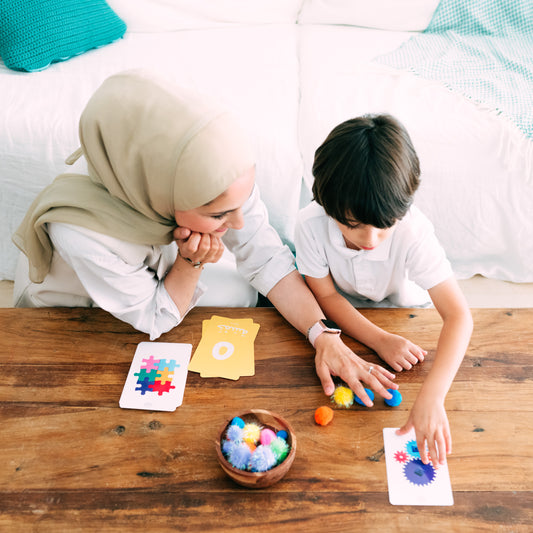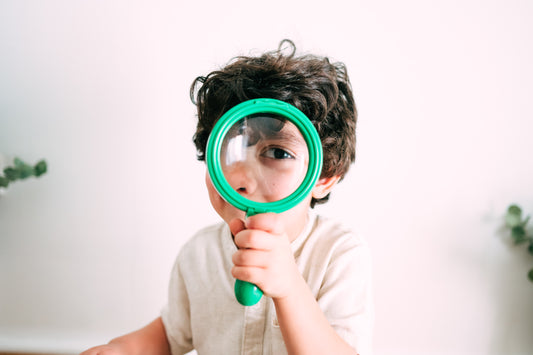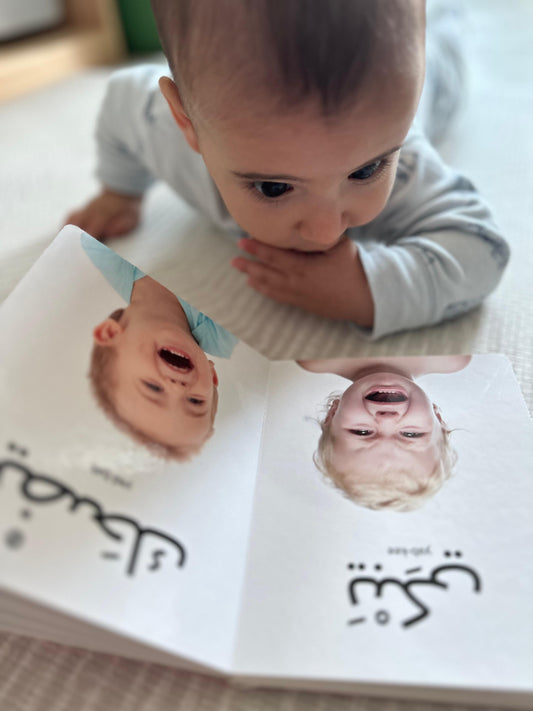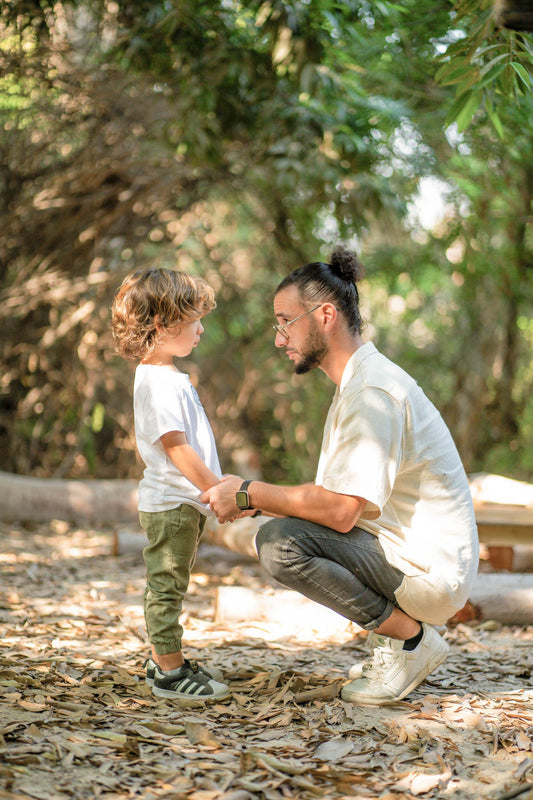
BLOG
Some tips, tricks and tidbits we’ve learned along the way.
Resources

Our Top Tips for Traveling With Kids!
Whether in an airplane, or at a restaurant, having your kids happily engaged can really transform an experience for the whole family! Here are our top tips and products for choosing travel-friendly activities to keep your kids busy on-the-go.
Our Top Tips for Traveling With Kids!
Whether in an airplane, or at a restaurant, having your kids happily engaged can really transform an experience for the whole family! Here are our top tips and products for choosing travel-friendly activities to keep your kids busy on-the-go.
READ MORE
Diving right into the science behind Early Brai...
Worry not, my two readers, today we’re getting right to the point. When we first started researching early childhood development, we came across this study from Harvard’s Center on the Developing Child. Look at how amazing this visual is, it was the spark we needed at the start of our Dardasha journey: This graph shows us that our young brains develop in a series of sequential and overlapping stages through the rapid formation of neural connections, key to our long and winding developmental journey: Sensory Pathways (vision and hearing): These connections start forming before birth and continue to develop quickly during our first year of life. Language: The window for optimal language development opens shortly after birth and peaks within the first few years. Higher Cognitive Functions: These functions, which include reasoning, problem-solving, and abstract thinking, develop later but build on the foundation set by sensory and language experiences. Here’s an excerpt from the study: “The basic architecture of the brain is constructed through an ongoing process that begins before birth and continues into adulthood. Early experiences affect the quality of that architecture by establishing either a sturdy or a fragile foundation for all of the learning, health and behavior that follow.” (emphasis mine) What does this tell us? A newborn’s experience in just their first year of life is captured through neural connections for vision, hearing and language. The brain builds from the bottom up, starting with a focus on basic skills, and then more complex skills built on top. Our brain is shaped by these early experiences. Language is a key milestone for later development. Considering each of the unique circumstances I talked about in my last post, my key takeaway is this: Not to underestimate my children’s inherent ability to absorb everything around them, no matter how young. On Language Language development sits at the center of this graph’s timeline, sandwiched between the overlapping sensory and cognitive windows, beginning right after birth and peaking around the first three years. This represents a critical window when the brain is soaking up linguistic input. During these years, our children are not passive recipients of language and communication but active participants in absorbing and making sense of the words and messages they hear. A Strong Foundation When our children are exposed to a rich language environment filled with talking, reading, singing, and interactive play, their neural connections solidify and expand. This foundation is crucial for later language proficiency and cognitive abilities. Communication is Key Research has consistently shown that early language exposure significantly impacts vocabulary size. Vocabulary isn’t just about the number of words a child knows but the depth and complexity of their language skills, which supports better communication and literacy skills as they get older. Language and expression as a window towards better socially and emotionally adjusted children cannot be emphasized enough. When my son can formulate his thoughts and express them in a way I can understand, it positions me to help them better. This study sums up perfectly why at Dardasha, we started with our First Words collection emphasizing focus and understanding of the world around them in Arabic through: Simple and eye-catching design. The use of realistic images. One image and word per page. Quality board books that encourage a child to hold and play with them. So when parents ask us when they should start with their children, we tell them from day 1. It doesn’t matter if day 1 is when they’re born, or years later, it’s never too early or too late to start. Simple exposure to our mother tongue does so much more than we realize. This concept even inspired our name and slogan: دردشة.. تبدأ بكلمة Dardasha sparks conversation. How We Do It is Simple Read together Sing and dance together Play together Expose them to our rich culture The beauty of all this is that it alleviates the self-imposed burden to ‘teach’ our children Arabic. Language development, like every other developmental milestone, is a part of their journey and identity, if we create an environment around them that normalizes it to the degree that we can. Unburdened by the pressure, all we can do is create an ecosystem that lifts them up and connects them deeper to their language and heritage without them even realizing it. As always, I'd love to hear your thoughts in the comments below. Thank you for reading. - Nabih
Diving right into the science behind Early Brai...
Worry not, my two readers, today we’re getting right to the point. When we first started researching early childhood development, we came across this study from Harvard’s Center on the...
READ MORE
Really, when should I teach my child Arabic?
A common question we frequently get asked is: When do I kickstart my children’s Arabic language development journey, based on the science behind early brain development? To start, we aren’t answering that question just yet. So, if you came here looking for an answer, prepare to be disappointed, this post is all questions. Because we can’t get to the right answer if we don’t agree on the questions we’re asking! The Arabic language development journey varies Parenting, in reality, is itself not a science. There is no single controlled environment in which all caregivers function, even when there are science-backed studies and recommendations we should pay attention to. We all live under varying circumstances, and should keep that in mind when we choose our parenting style in a developmentally-appropriate way. There’s so much information out there on what we should, and should not, do to give our children the best developmental journey. In that clutter of science and opinion-based content, it can get overwhelming:Did I start too late? Am I doing enough? Is this even necessary? Who even am I? We understand there’s pressure There’s pressure to constantly look outwards and compare journeys. Oftentimes we put that pressure on ourselves, internalizing a preconceived notion of short-comings or expectations, and end up projecting our own fears onto our children.This approach is exhausting. I’m exhausted typing it out! With so many variables, an imported one-size-fits-all approach to early language development just doesn’t seem to make sense to us, especially because each of our language, culture and identity circumstances are unique:Time: Do I have enough of it?Culture: Is this advice relevant to my values?Support: Even if I had all the answers, do I have enough support to put them into practice?Financial freedom: Is this a necessity or a luxury for my family?Country: Does where I live make it easier or harder for me?Kids: How do I cater to each of my kids’ unique personalities, needs, and forms of expression?The list is endless, and it's not all-or-nothing. That is why we like to bring it back to the basics: The science of early childhood development. Sit back and enjoy this upcoming series of short reads about not too much, but also something pretty awesome around the science of early childhood development, how it relates to language, and specifically (of course), Arabic.Also if you missed out on our earlier (introspective) blog: A Parent Perspective: Why Write in English and not in Arabic? You can catch up here. As always, I'd love to hear your thoughts in the comments below.Thank you for reading. - Nabih
Really, when should I teach my child Arabic?
A common question we frequently get asked is: When do I kickstart my children’s Arabic language development journey, based on the science behind early brain development? To start, we aren’t...

A Parent Perspective: Why write in English & no...
Our focus is empowering our children and their generation in their mother tongue. children development early language development language Arabic
A Parent Perspective: Why write in English & no...
Our focus is empowering our children and their generation in their mother tongue.
children development early language development language Arabic